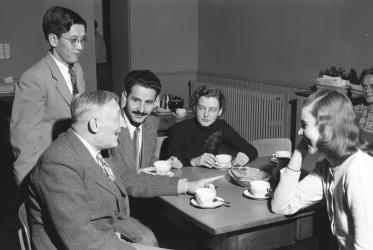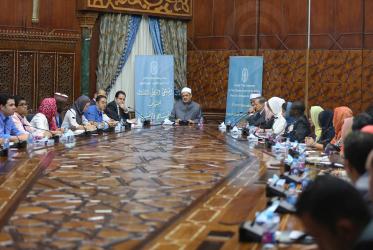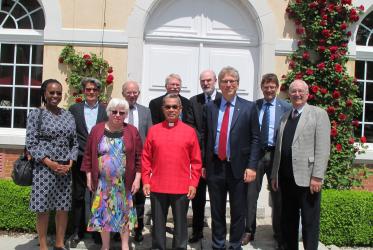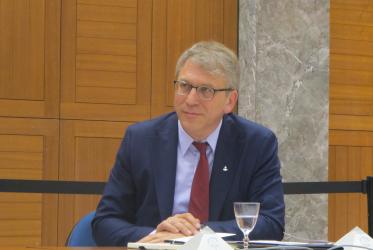Displaying 121 - 140 of 221
26 January 2017
What does ‘prudence’ mean for dialogue and peace-building?
16 November 2016
Tveit offers input at religion and development meeting
03 October 2016
Bossey anniversary commemorates 70 years of heartfelt dialogue
28 September 2016
Seminar will address youth engagement, religion and violence
19 August 2016
Hielke Wolters: Apostle of mission strategies
01 August 2016
A fresh agenda for ecumenism in Asia
20 July 2016
Panel discussion fields ideas on European identity
26 April 2016
Catholic-WCC group pursues new mandate
13 April 2016















